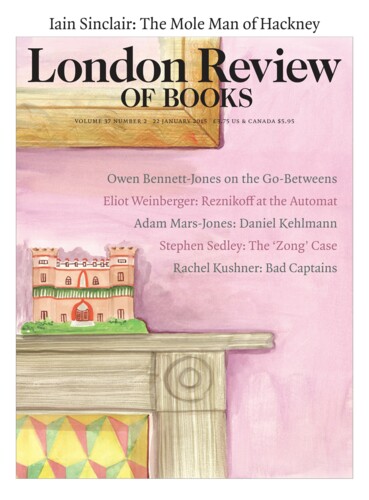It was a horrific event. It was condemned in most parts of the world and most poignantly by many cartoonists. Those who planned the atrocity chose their target carefully. They knew that such an act would create the maximum horror. It was quality, not quantity they were after. The response will not have surprised or displeased them. They don’t care a damn for the world of unbelievers. Unlike the medieval inquisitors of the Sorbonne they do not have the legal and theological authority to harass booksellers or printers, ban books and torture authors, so they go one step further and order executions.
What of the foot-soldiers? The circumstances that attract young men and women to these groups are creations of the Western world that they inhabit – which is itself a result of long years of colonial rule in the countries of their forebears. We know that the Parisian brothers Chérif and Saïd Kouachi were long-haired inhalers of marijuana and other substances until (like the 7 July bombers in this country) they saw footage of the Iraq war and, in particular, of the torture taking place in Abu Ghraib and the cold-blooded killings of Iraqi citizens in Fallujah.
They sought comfort in the mosque. Here they were radicalised by waiting hardliners for whom the West’s war on terror had become a golden opportunity to recruit and hegemonise the young, both in the Muslim world and in the ghettoes of Europe and North America. Sent first to Iraq to kill Americans and more recently to Syria (with the connivance of the French state?) to topple Assad, such young men were taught how to use weapons effectively. Back home they got ready to deploy this knowledge against those who they believed were tormenting them in difficult times. They were the persecuted. Charlie Hebdo represented their persecutors. The horror should not blind us to this reality.
Charlie Hebdo had made no secret of the fact that it intended to carry on provoking believing Muslims by targeting the Prophet. Most Muslims were angry about this, but ignored the insult. The paper had reprinted the Danish daily Jyllands-Posten’s cartoons of Muhammad in 2005 – the ones that depicted him as a Pakistani immigrant. The Danish newspaper admitted that it would never publish anything similar depicting Moses or the Jews (perhaps it had already done so: it certainly published articles supporting the Third Reich), but Charlie Hebdo sees itself as having a mission to defend republican secular values against all religions. It has occasionally attacked Catholicism, but it’s hardly ever taken on Judaism (though Israel’s numerous assaults on Palestinians have offered many opportunities) and has concentrated its mockery on Islam. French secularism today seems to encompass anything as long as it’s not Islamic. Denunciations of Islam have been relentless in France, with Michel Houellebecq’s new novel, Soumission (the word Islam means ‘submission’), the latest salvo. It predicts the country being ruled by a president from a group he calls the Muslim Fraternity. Charlie Hebdo, we should not forget, ran a cover lampooning Houellebecq on the day it was attacked. Defending its right to publish, regardless of consequences, is one thing, but sacralising a satirical paper that regularly targets those who are victims of a rampant Islamophobia is almost as foolish as justifying the acts of terror against it. Each feeds on the other.
French law allows freedoms to be suspended under the threat of unrest or violence. Before now this provision has been invoked to forbid public appearances by the comedian Dieudonné (well known for making anti-Semitic jokes) and to ban pro-Palestinian demonstrations – France is the only Western country to do this. That such actions are not seen as problematic by a majority of the French people speaks volumes. It isn’t just the French: we didn’t see torchlight vigils or mass assemblies anywhere in Europe when it was revealed that the Muslim prisoners handed over to the US by many EU countries (with the plucky Poles and Labour-run Britain in the forefront) had been tortured by the CIA. There is a bit more at stake here than satire.
The smugness of secular liberals who talk of defending freedom to the death is matched by liberal Muslims who waffle endlessly about how what happened had nothing to do with Islam. There are different versions of Islam (the occupation of Iraq was used deliberately to trigger the Sunni-Shia wars that helped give birth to the Islamic State); it is meaningless to claim to speak in the name of a ‘real’ Islam. The history of Islam from its very beginnings is replete with factional struggles. Fundamentalist currents within Islam as well as external invasions were responsible for wiping out many cultural and scientific advances in the late medieval period. Such differences continue to exist.
Meanwhile, Hollande and Sarkozy have announced that they will lead a march of national unity (Cameron’s going along too). As a French friend wrote to me, ‘The idea of Charlie Hebdo provoking a “union sacrée” has to be one of the ironies of history that even the most cynical post-’68 libertarian anti-establishmentarian would have choked on in disbelief.’
9 January
Send Letters To:
The Editor
London Review of Books,
28 Little Russell Street
London, WC1A 2HN
letters@lrb.co.uk
Please include name, address, and a telephone number.

